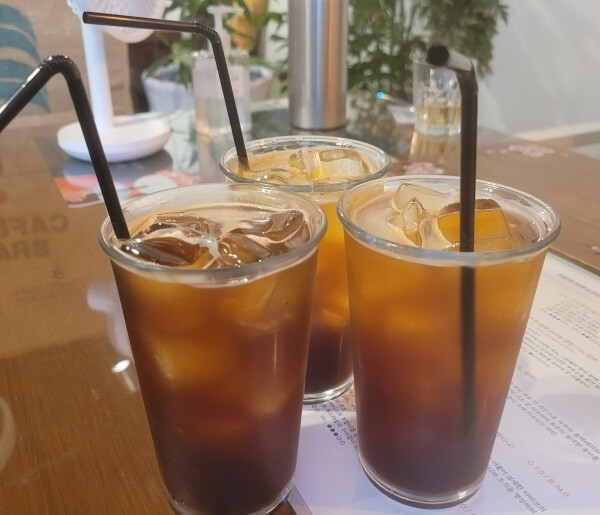
As a relentless heatwave continues across the Western United States, the National Weather Service (NWS) has issued heat warnings for California, Arizona, and Nevada, urging citizens to strictly adhere to health guidelines. Experts particularly emphasize the dangers of alcohol and caffeine consumption during the heat and stress the importance of effective hydrating beverages and dietary practices.
Heatwave Warning Issued: Essential Health Guidelines?
The Las Vegas Weather Service issued a heat warning for parts of California, Arizona, and Nevada from June 18-19, conveying the following recommendations. The core advice includes adequate hydration, using sunscreen, and engaging in outdoor activities during cooler hours. They also urged avoiding alcohol and caffeinated beverages, as well as high-calorie foods, emphasizing a full effort to prevent heat-related illnesses due to the heatwave.
This is more than just advice; it's a matter of survival. Heatwaves can cause various heat-related illnesses such as heatstroke and heat exhaustion, which can be life-threatening in severe cases. Children, the elderly, and those with chronic diseases are particularly vulnerable to heatwaves and require special attention.
Why Alcohol and Caffeine Are Dangerous in a Heatwave
Nutrition experts strongly warn against alcohol consumption during hot weather. Lauren Manaker, a nutritionist in South Carolina, advises, "When it's really hot, it's a good idea to think twice before reaching for that cold beer or cocktail." The reason is that alcohol is a major culprit in dehydrating the body.
Manaker explains that alcohol acts as a diuretic, causing the body to expel more water than is consumed. This can lead to dehydration and, in severe cases, disrupt the body's temperature regulation, leading to a rise in body temperature and worsening into exhaustion. Water loss in the body can thicken the blood and impede circulation, putting a strain on the cardiovascular system. Additionally, alcohol can impair brain function, risking blurred judgment in a heatwave situation.
Caffeinated beverages like coffee and tea also have a diuretic effect similar to alcohol. However, Manaker adds, "If you're hydrating well, it's not a big problem," but also notes that "one should consume an appropriate amount according to their condition." This suggests that excessive caffeine intake can cause dehydration. Even for those who usually drink a lot of coffee, it's necessary to reduce intake or increase water intake during a heatwave. Caution is advised as prolonged exposure to high temperatures can lead to side effects such as increased blood pressure and heart rate.
The Best Hydrating Beverage Is 'Skim Milk'
So, what's the most effective hydrating beverage in the heat? Surprisingly, the answer is skim milk. Manaker states, "Research shows that milk is actually more effective at hydrating than water or sports drinks." She explains that this is because milk is packed with natural electrolytes like potassium, sodium, magnesium, and calcium, as well as carbohydrates and protein, which help the body recover and maintain fluids.
Indeed, a 2016 study by St Andrews University in the UK also identified skim milk as the most effective hydrating beverage. This shows that milk not only replenishes fluids but also effectively balances the body's electrolyte levels and provides energy, excellent for recovering a body fatigued by a heatwave. While water and sports drinks help quench thirst, they have limitations in adequately replenishing electrolytes lost during prolonged activity. Therefore, consuming skim milk to replenish essential electrolytes along with fluids is more effective during a heatwave. It is preferable to choose plain or low-fat milk rather than sweetened beverages with high sugar content.
In a Heatwave, Choose 'Salad + Lean Meat' to Reduce Digestive Burden
The National Weather Service also emphasizes caution with meals during high temperatures. High-calorie foods can further raise body temperature. The explanation is that consuming a lot of energy during digestion naturally increases the body's internal temperature.
Expending a lot of energy on digestion in hot weather can cause a rise in body temperature, increasing the risk of heat-related illnesses. It's particularly advisable to avoid fatty, spicy, or salty foods as they can burden digestion and cause thirst. The NWS advises, "Opt for fresh and light meals such as salads, grilled vegetables, and lean meats."
In summer, it's important to consume plenty of fresh vegetables and fruits to replenish vitamins and minerals and aid hydration. Water-rich vegetables and fruits like cucumbers, tomatoes, and watermelon invigorate a body tired by the heat. For protein intake, focus on lean meats, and choose steaming or boiling over frying or stir-frying to reduce digestive burden. Also, it's wise to eat small amounts frequently to avoid overeating at once.
A heatwave should be recognized as more than just hot weather; it's a disaster. The recommendations from the National Weather Service and experts are basic health guidelines to protect lives. Reducing alcohol and caffeine intake, hydrating with skim milk and light meals, adjusting outdoor activity times, and paying attention to sun protection are the smartest ways to protect ourselves from the heatwave. This summer, let's practice smart lifestyle habits to avoid losing our health under the scorching sun.
[Copyright (c) Global Economic Times. All Rights Reserved.]






























